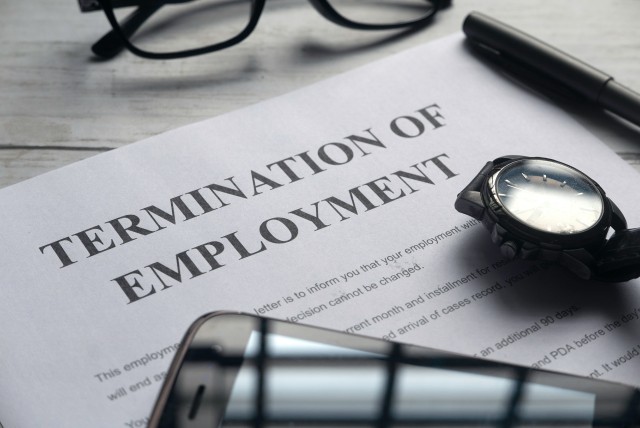
Employee Dismissal Letter for Gross Misconduct: A Guide for Employers
Employee Dismissal Letter for Gross Misconduct
As an employment law specialist, I frequently advise employers on the complexities of managing workplace misconduct. In particular, writing an employee dismissal letter for gross misconduct demands careful consideration. This process not only impacts the individual involved but also the overall workplace environment. It’s crucial to understand what gross misconduct entails and the implications of mishandling such situations.
Defining Gross Misconduct in the Workplace
Gross misconduct represents a severe breach of workplace conduct. It typically includes actions that fundamentally break the trust and contract between employer and employee. Examples include theft, fraud, physical violence, substance abuse and serious breaches of health and safety regulations. Recognizing these actions is the first step in addressing them appropriately.
Importance of Correct Dismissal Procedures
Correctly handling the dismissal process is vital. It safeguards your business against potential legal challenges. A well-drafted employee dismissal letter for gross misconduct serves as a key part of this process. It ensures clarity and fairness, reflecting your commitment to upholding legal and ethical standards in the workplace.
- Identify the misconduct clearly and objectively.
- Ensure the action breaches company policy or contract terms.
- Document all incidents and evidence meticulously.
- Follow a fair and consistent disciplinary process.
- Seek legal advice when in doubt.
These steps are crucial in building a robust and defensible case for dismissal. They also demonstrate to your team that you handle such issues with the seriousness they deserve. Remember, how you manage gross misconduct reflects on your company’s values and culture.
In conclusion, writing an employee dismissal letter for gross misconduct requires a deep understanding of both legal obligations and the human element of workplace relations. As an employer, you bear the responsibility of making decisions that are not only legally compliant but also ethically sound. This approach not only protects your business but also contributes to a positive and respectful workplace environment.
Legal Framework Surrounding Gross Misconduct Dismissals
Understanding the legal framework is essential when handling an employee dismissal letter for gross misconduct. UK employment law provides specific guidelines that employers must follow to ensure a fair and lawful dismissal process. This section looks at the legalities, helping employers follow a correct legal process.
UK Employment Law on Gross Misconduct
Under UK employment law, gross misconduct refers to behaviour that is so serious it justifies immediate dismissal. This includes actions like theft, fraud, severe negligence, or violence. Employers must have a clear definition of gross misconduct in their policies. This clarity is crucial for legal protection and maintaining workplace standards.
Legal Considerations for Employers and Employees
Both employers and employees have rights under the law. As an employer, you have the right to dismiss an employee for gross misconduct. However, you must also respect the employee’s rights during this process. This includes the right to a fair hearing, a reasonable investigation, and the opportunity to appeal.
- Conduct a thorough and unbiased investigation.
- Provide a clear and specific reason for dismissal.
- Follow your own disciplinary procedures consistently.
- Respect the employee’s right to respond and appeal.
- Consider any mitigating circumstances that the employee presents.
Adhering to these principles helps ensure that your actions are legally defensible. It also fosters a sense of justice and fairness within your organization. Keeping abreast of legal updates in employment law is crucial for ongoing compliance.
Key Components of an Employee Dismissal Letter for Gross Misconduct
A well-written employee dismissal letter for gross misconduct is pivotal in the dismissal process. This letter should convey all necessary information clearly and professionally. Here, I outline the essential components such a letter must include.
Essential Elements of the Dismissal Letter
The dismissal letter must be clear, concise and factual. Start with a straightforward statement of the decision to dismiss. Follow this with a clear explanation of the gross misconduct that led to this decision. It’s important to reference any relevant company policies or previous warnings.
- State the decision to dismiss clearly.
- Detail the specific gross misconduct.
- Reference company policies and previous warnings, if applicable.
- Include details of any investigation or disciplinary meetings.
- Provide information on final pay and any company property to be returned.
This letter serves as an official record of dismissal. Hence, it should be factual and devoid of any emotional language. It should also inform the employee of their right to appeal the decision. A well-written dismissal letter not only communicates the decision effectively but also helps protect your organization from potential legal disputes.
The Procedure: Steps Before Issuing the Dismissal Letter
Before issuing an employee dismissal letter for gross misconduct, it’s imperative to follow a structured procedure. This process not only ensures fairness but also legal compliance. As an employment law specialist, I advise employers to meticulously adhere to these steps.
Detailed Examination of the Disciplinary Process
The disciplinary process is a critical stage in addressing gross misconduct. It begins with a thorough investigation into the alleged misconduct. Gather all relevant evidence and witness statements. This investigation must be impartial and comprehensive. Remember, the strength of your case often rests on the quality of your investigation.
Importance of Documentation and Policy Adherence
Document every step of the process. This documentation is crucial should the case escalate to an employment tribunal. Ensure that you adhere strictly to your company’s disciplinary policy. Consistency in applying these policies is key to demonstrating fairness and legal compliance.
- Initiate a thorough and unbiased investigation.
- Document all findings and steps taken.
- Hold a disciplinary meeting with the employee, providing advance notice.
- Allow the employee to be accompanied at the meeting.
- Communicate the outcome in writing.
This structured approach not only upholds legal standards but also reinforces trust within your team. It shows that you handle such serious matters with the due process they deserve.
Common Mistakes to Avoid in Dismissal Letters
In drafting an employee dismissal letter for gross misconduct, certain pitfalls can lead to legal challenges or damage to your business’s reputation. Awareness of these common mistakes is crucial for employers. Here, I highlight key areas to be mindful of in your letter.
Examples of Pitfalls in Dismissal Letters
Ambiguity or lack of specifics can undermine your letter’s effectiveness. Avoid generic statements; instead, be specific about the misconduct. Refrain from using emotional or accusatory language. This not only keeps the tone professional but also helps in maintaining a factual approach.
- Avoid vague or generic descriptions of misconduct.
- Refrain from emotional or accusatory language.
- Ensure all statements are factual and supported by evidence.
- Do not overlook any part of the disciplinary process.
- Avoid inconsistencies with company policies or previous actions.
These tips help in crafting a dismissal letter that is clear, professional, and legally robust. A well-composed letter not only conveys your decision effectively but also minimizes the risk of legal repercussions for your business.
After the Dismissal: Best Practices for Employers
After issuing an employee dismissal letter for gross misconduct, the process is not yet complete. As an employer, how you handle the aftermath is equally important. Proper management of the post-dismissal period is crucial for maintaining a positive work environment and safeguarding your business’s reputation.
Guidance on Handling the Post-Dismissal Period
Following a dismissal, it’s essential to address any impact on your team and operations. Communicate with your staff to mitigate any unrest or speculation. Ensure this communication is respectful of all parties’ privacy and legal rights. It’s also a chance to reaffirm your commitment to a respectful and safe workplace.
Recommendations for Internal Communication
Effective internal communication is key in these situations. It helps in maintaining staff morale and trust in management. Clearly explain the situation without divulging confidential details. This transparency shows that you manage such serious issues with fairness and integrity.
- Communicate the changes to your team appropriately.
- Reiterate your company’s values and standards.
- Offer support to staff who may be affected by the dismissal.
- Review and reinforce your company’s disciplinary policies.
- Consider training or workshops on relevant workplace conduct.
These steps help in not only managing the immediate impact but also in building a stronger, more cohesive work culture. Remember, the way you handle a dismissal can significantly influence your team’s morale and your company’s public image.
In conclusion, managing the aftermath of an employee dismissal letter for gross misconduct requires sensitivity, clear communication and a focus on the well-being of your remaining team. This approach not only helps in smoothly transitioning through a challenging period but also sets a precedent for how such matters are handled in your organization. A thoughtful and structured post-dismissal strategy is beneficial for the long-term health and reputation of your business.
Dismissing an employee within 2 years
Call John Bloor at EBS Law on 01625 87 4400 if you are an employer and need free Employment Law Advice.

